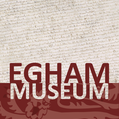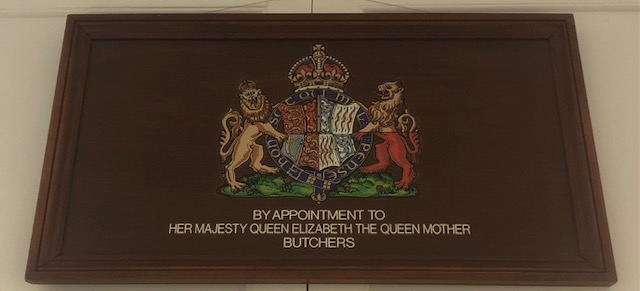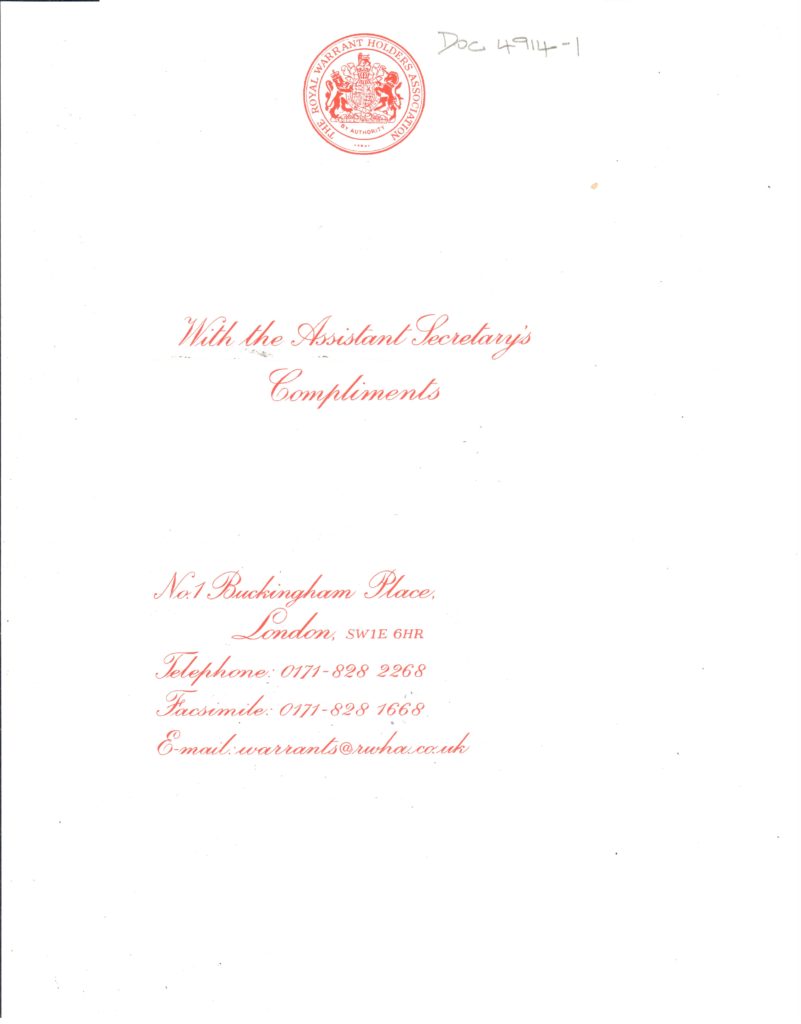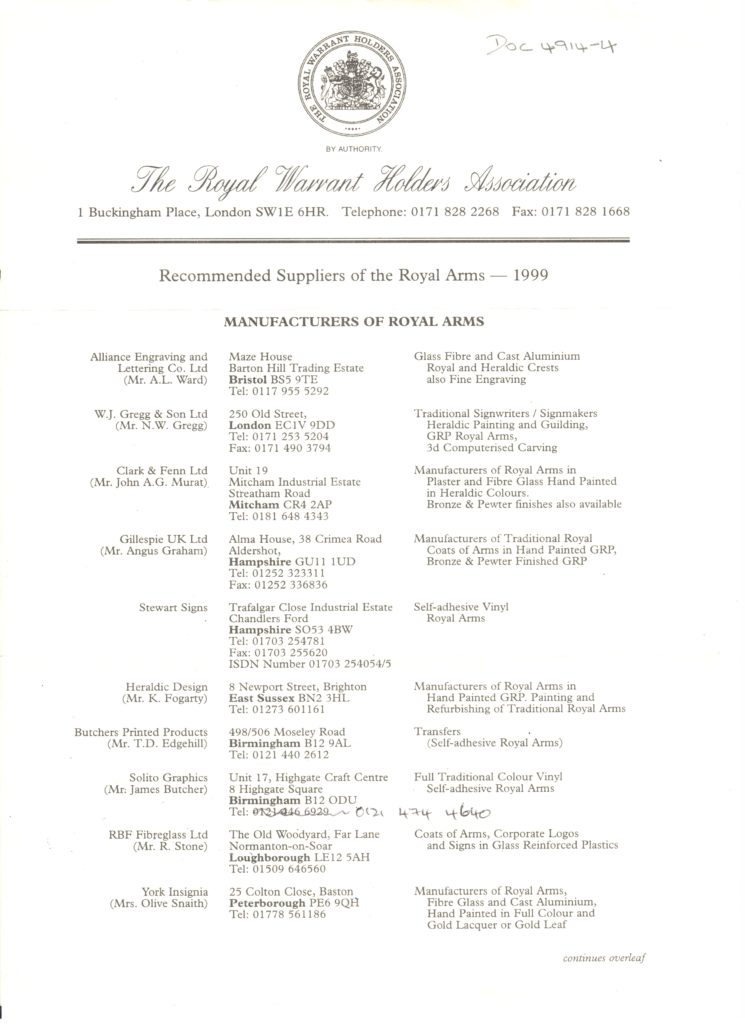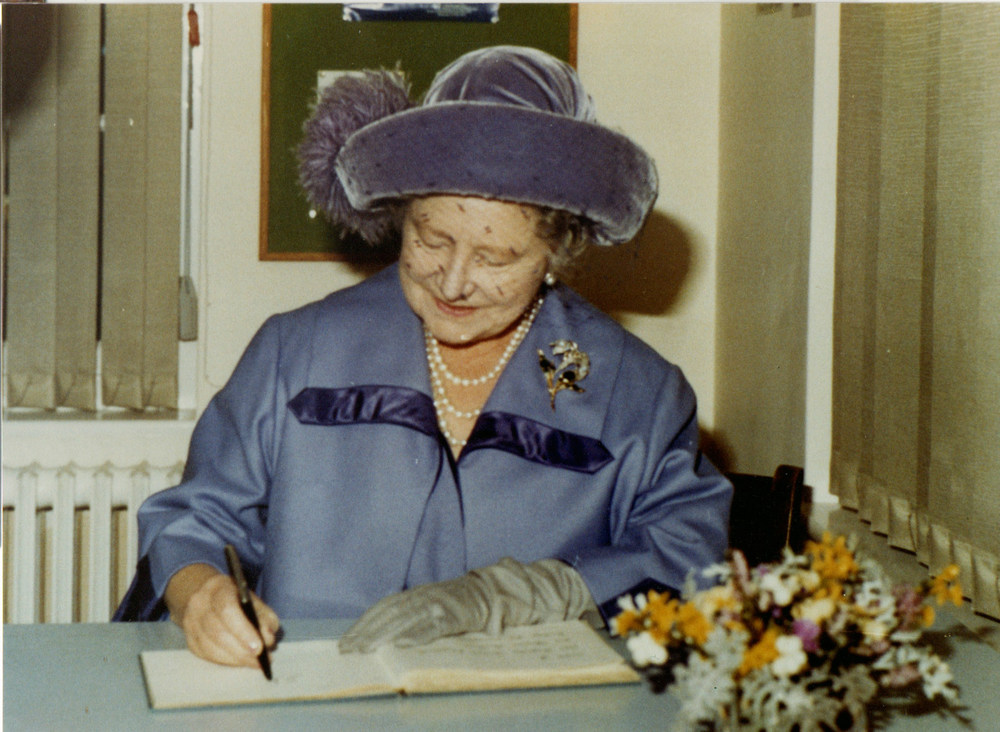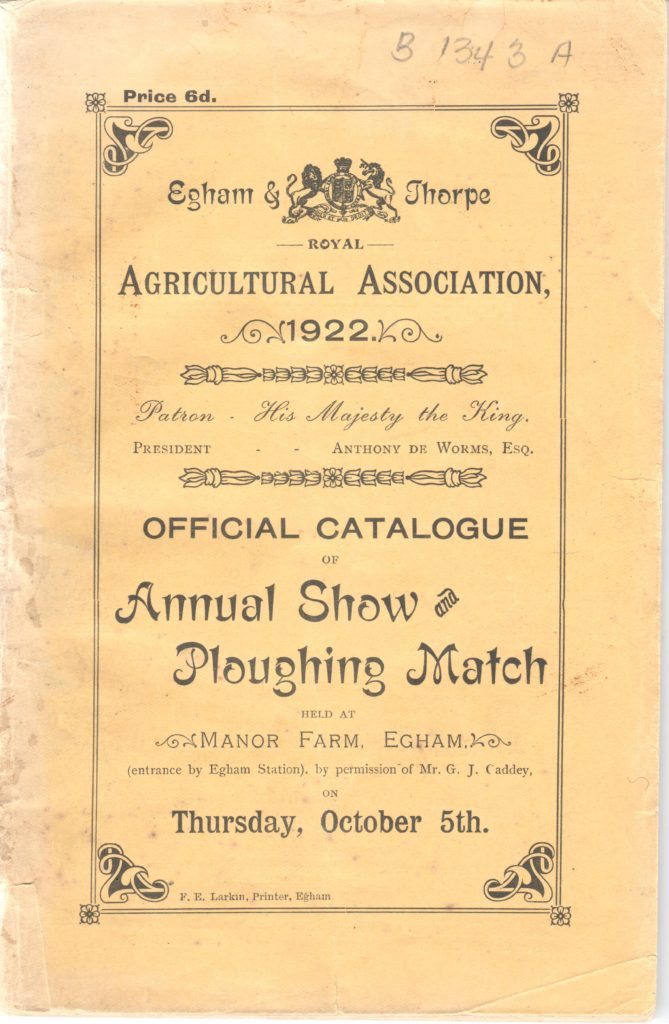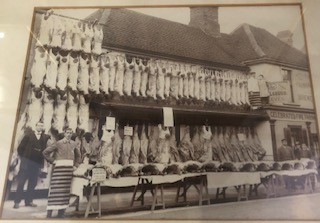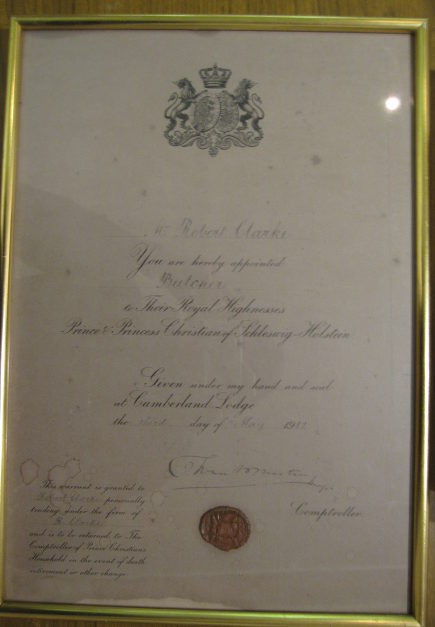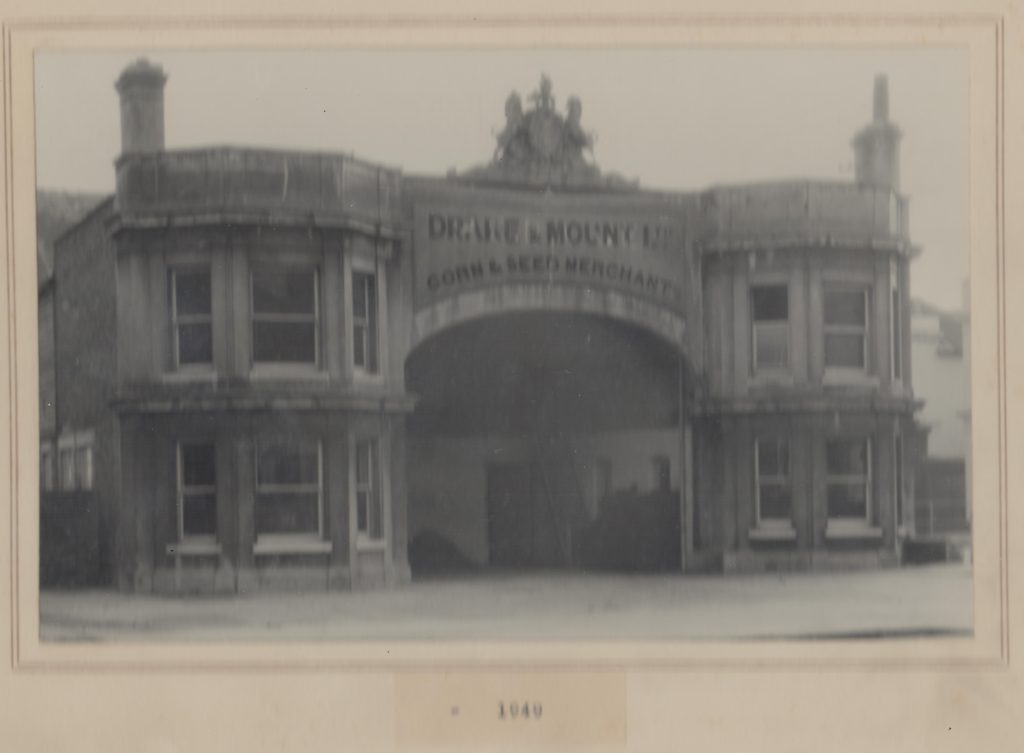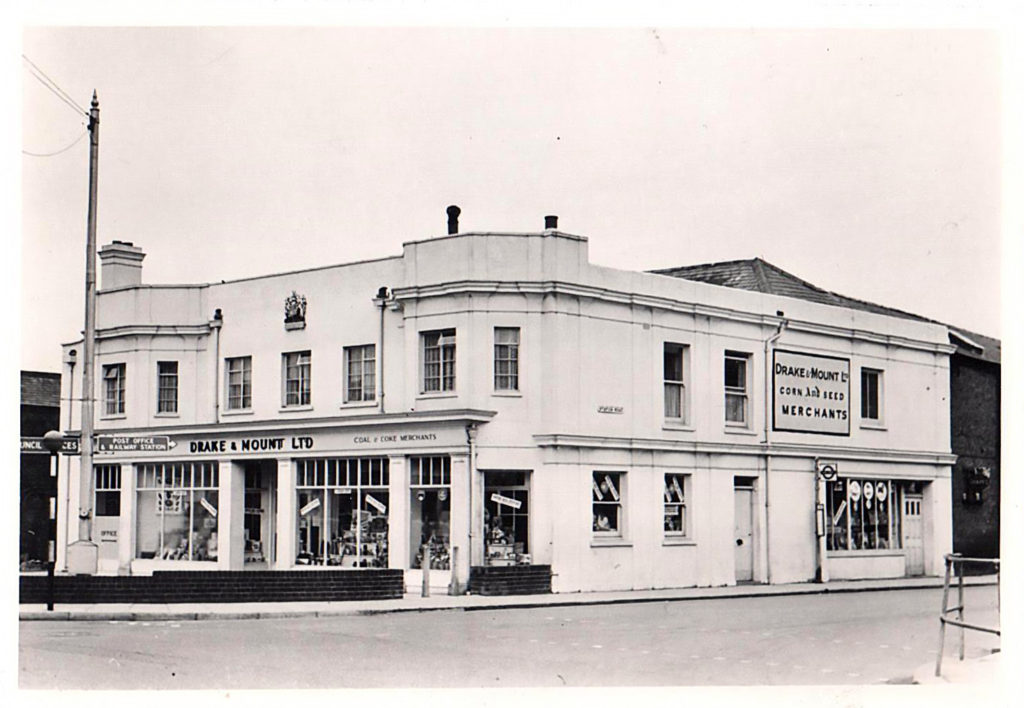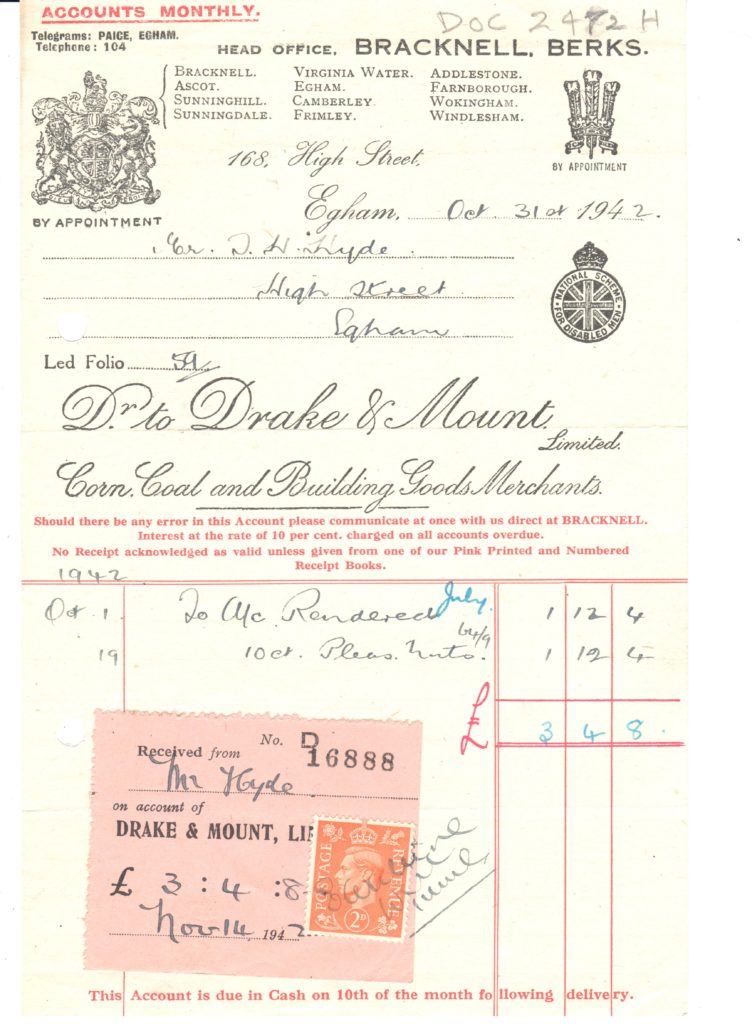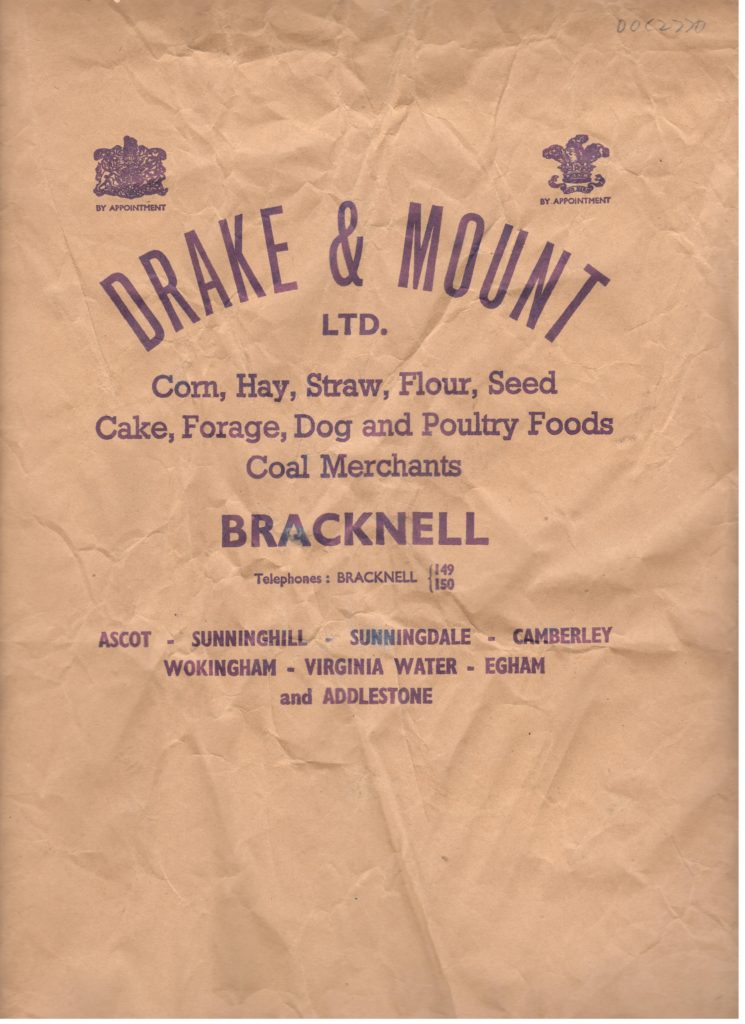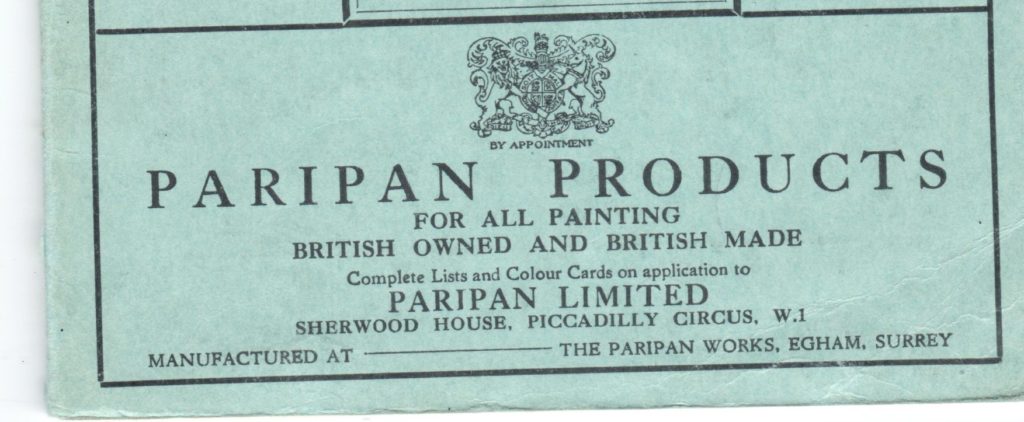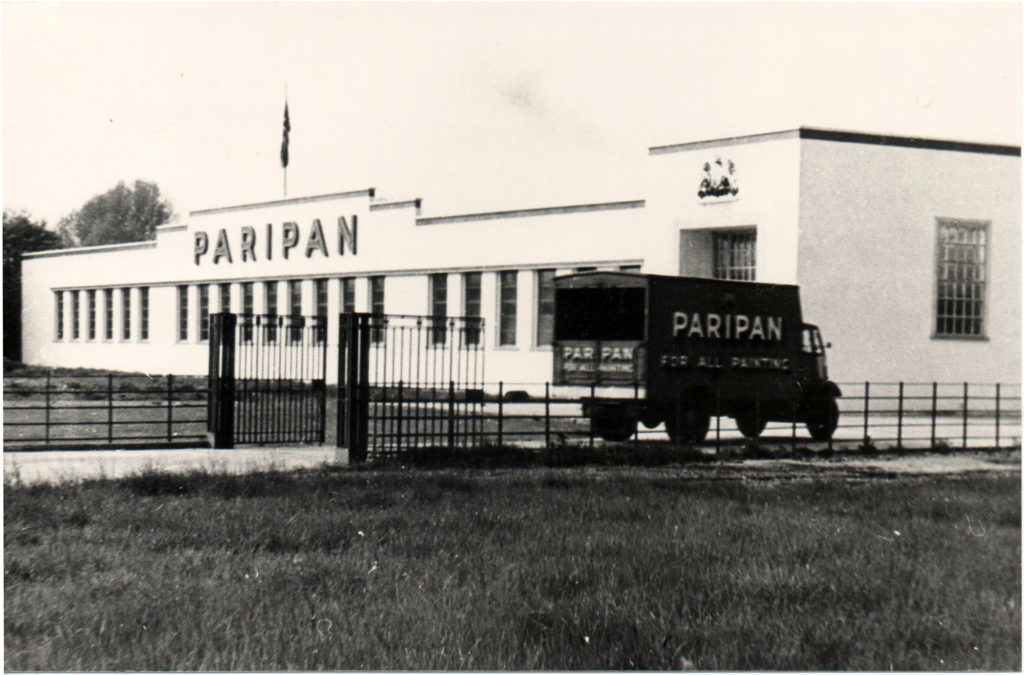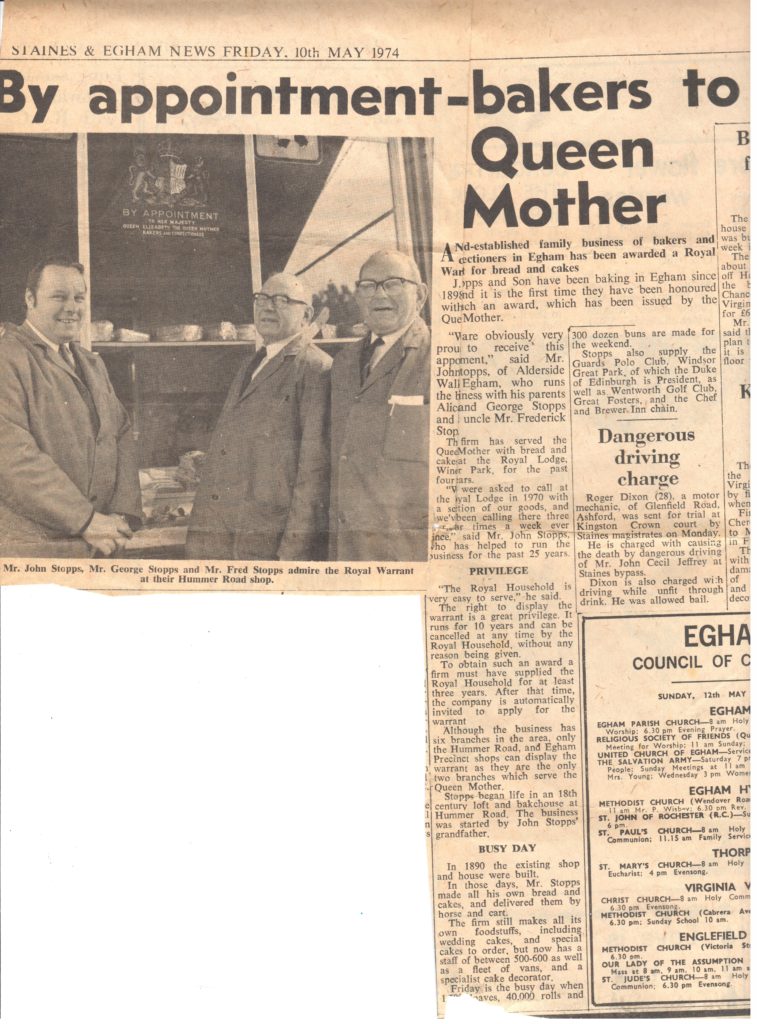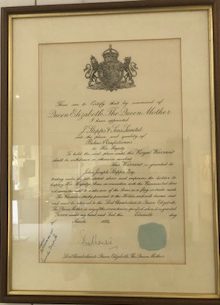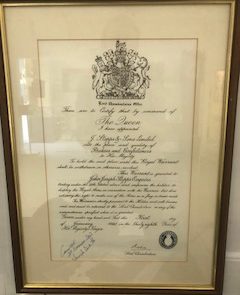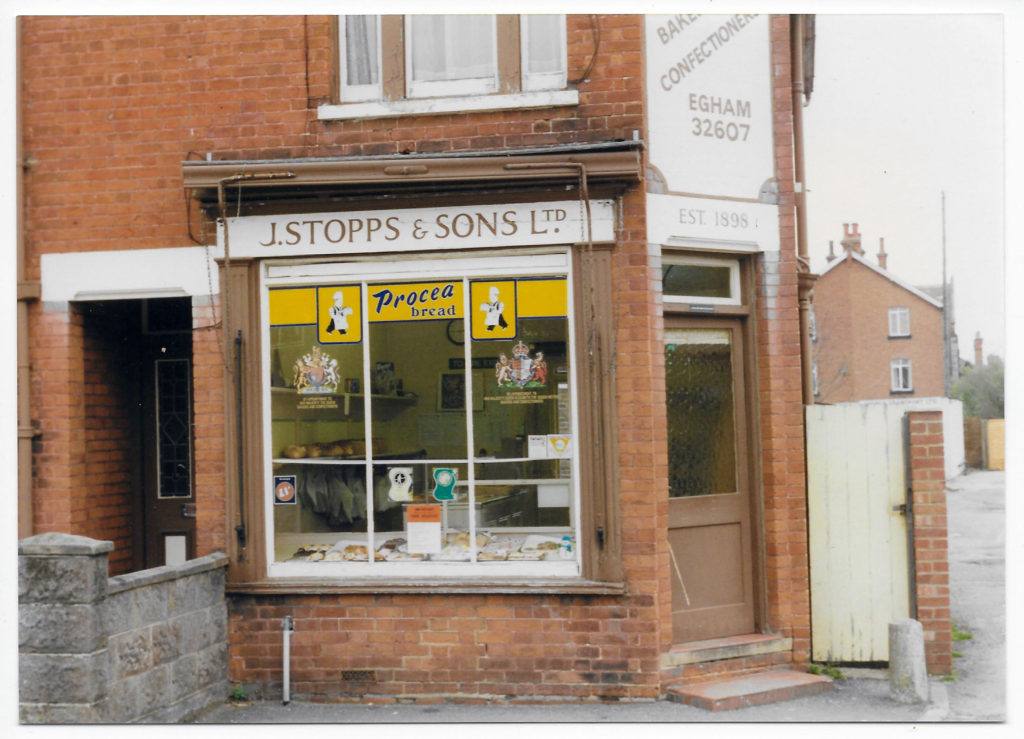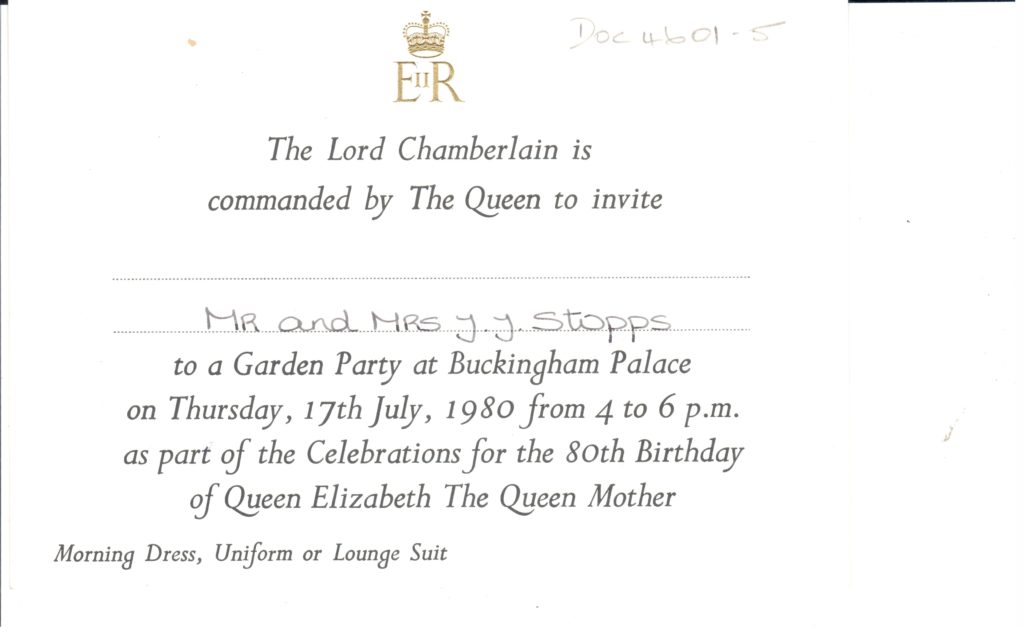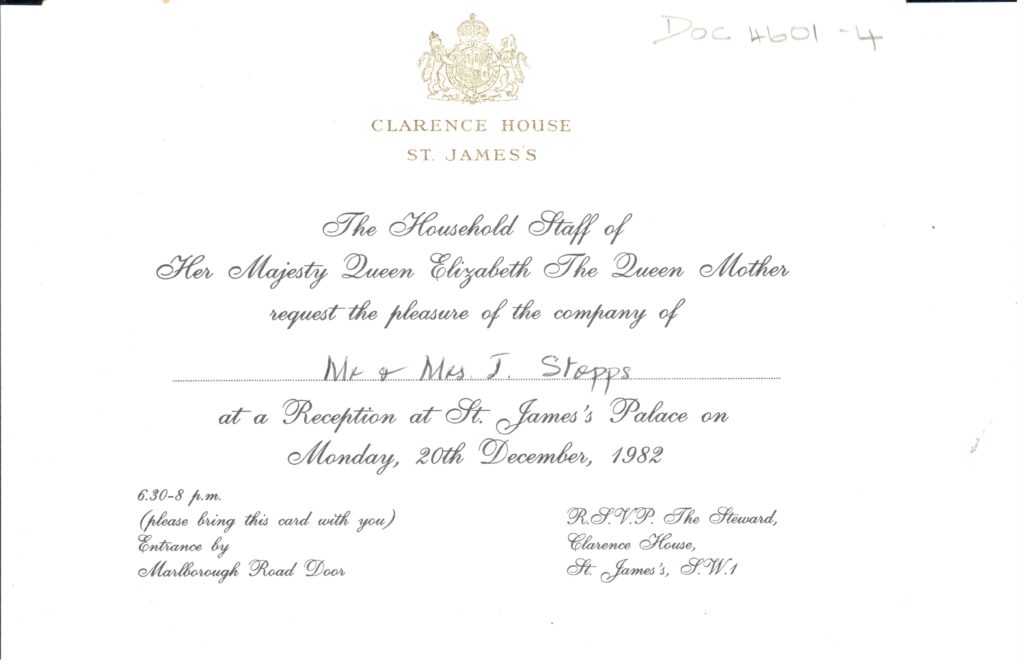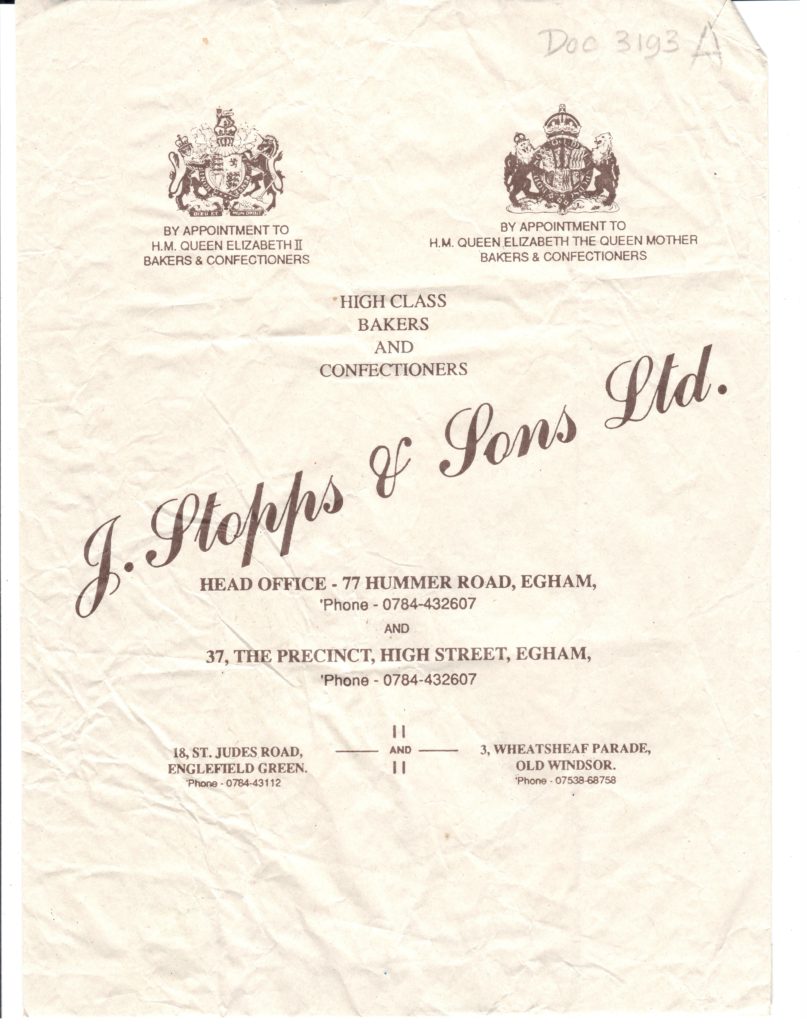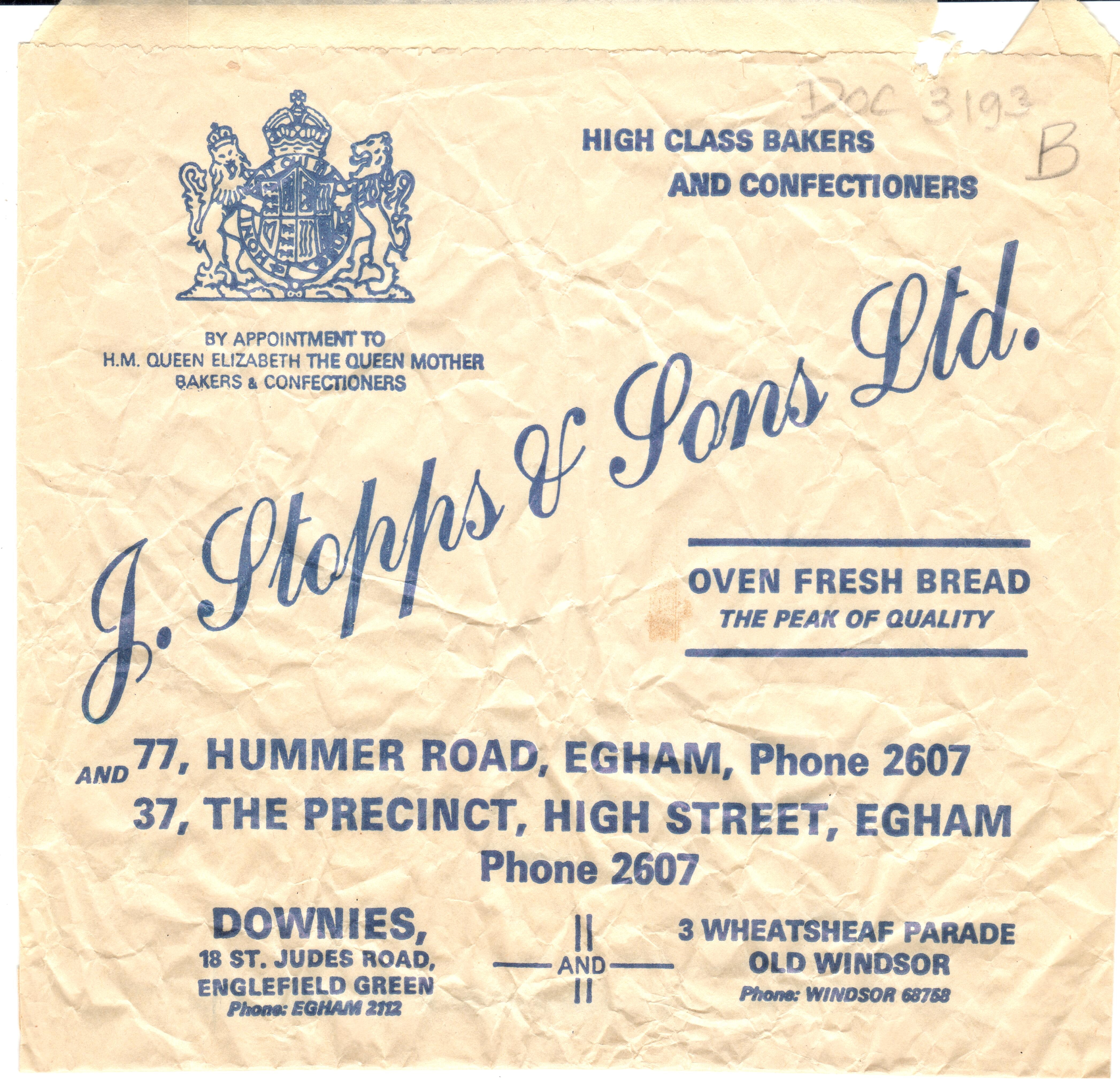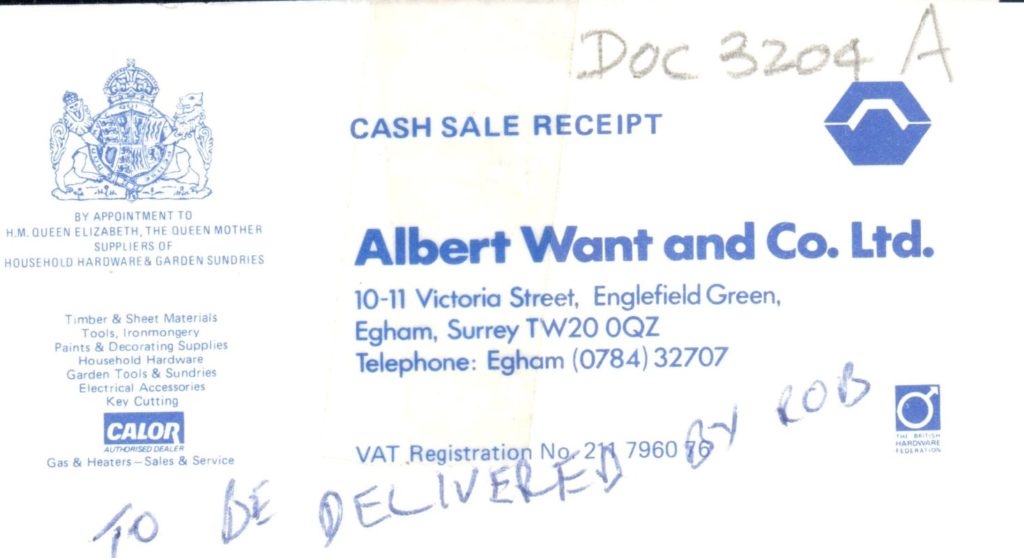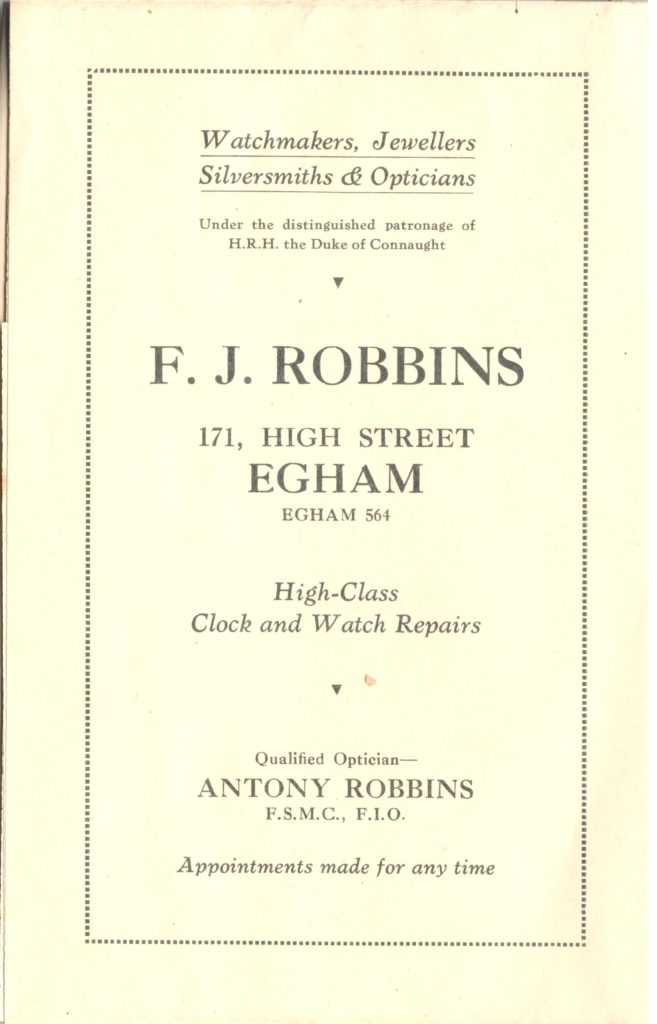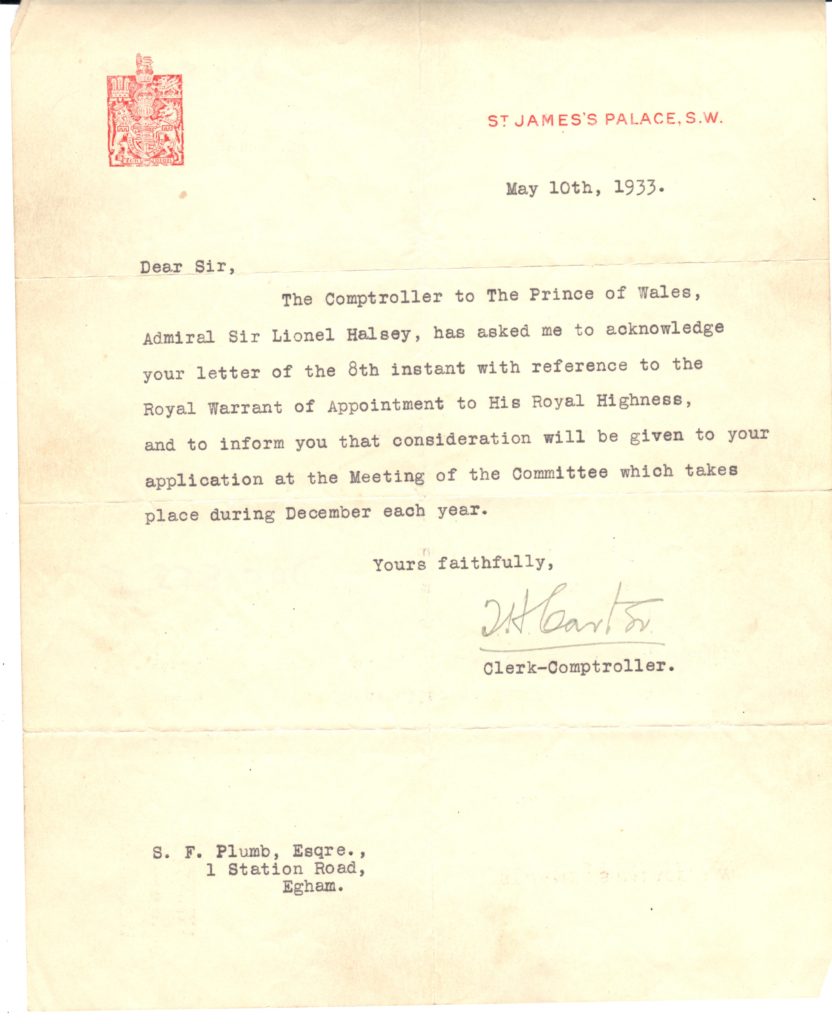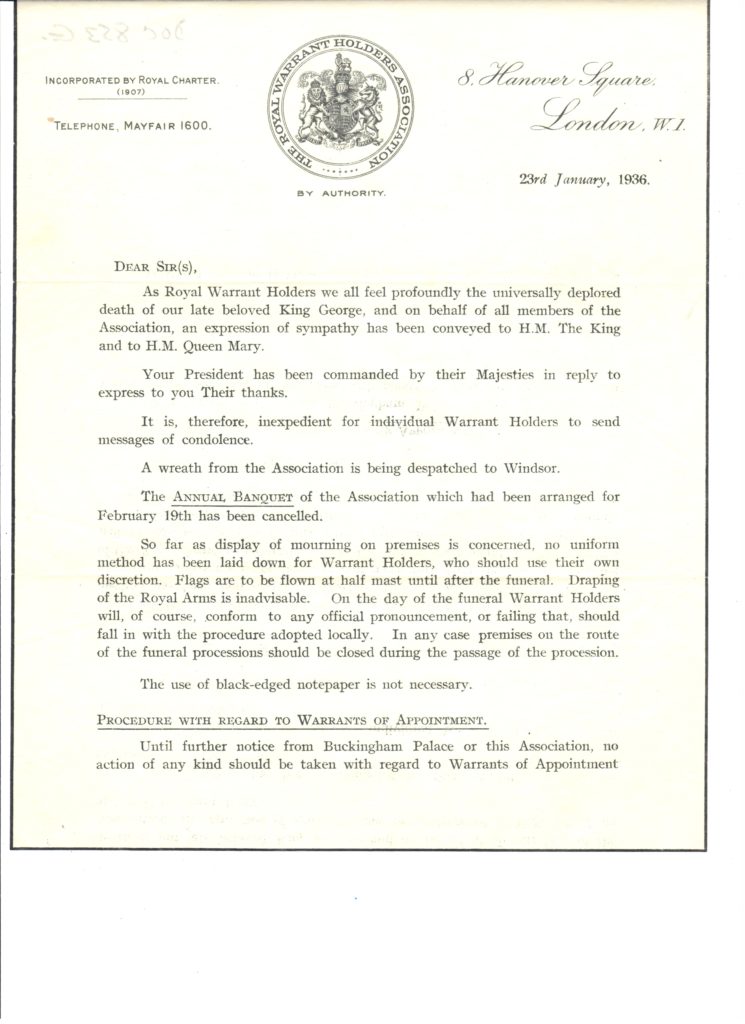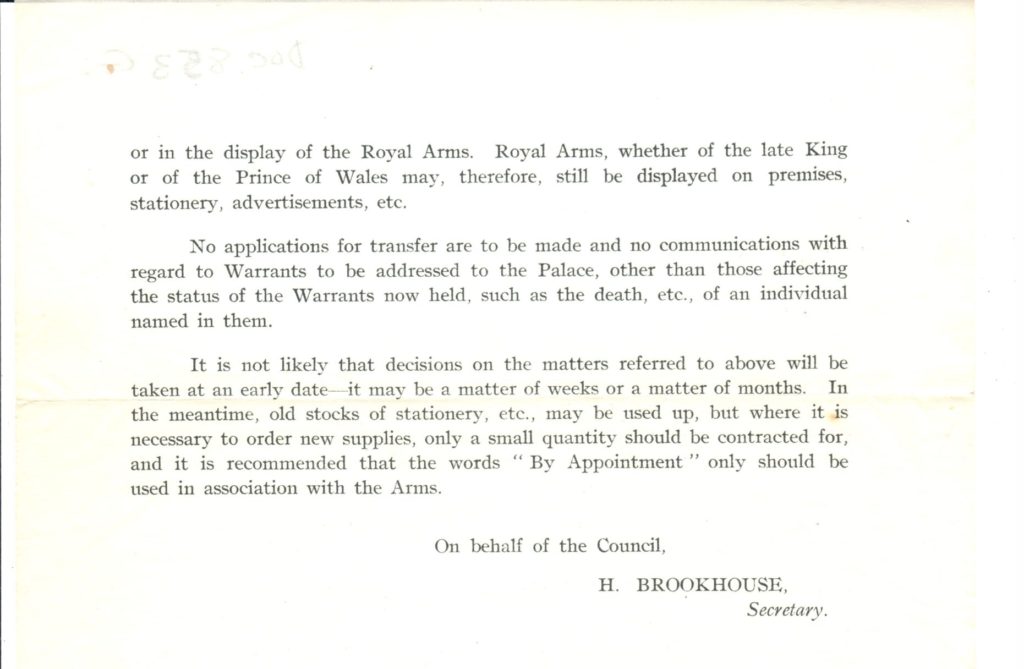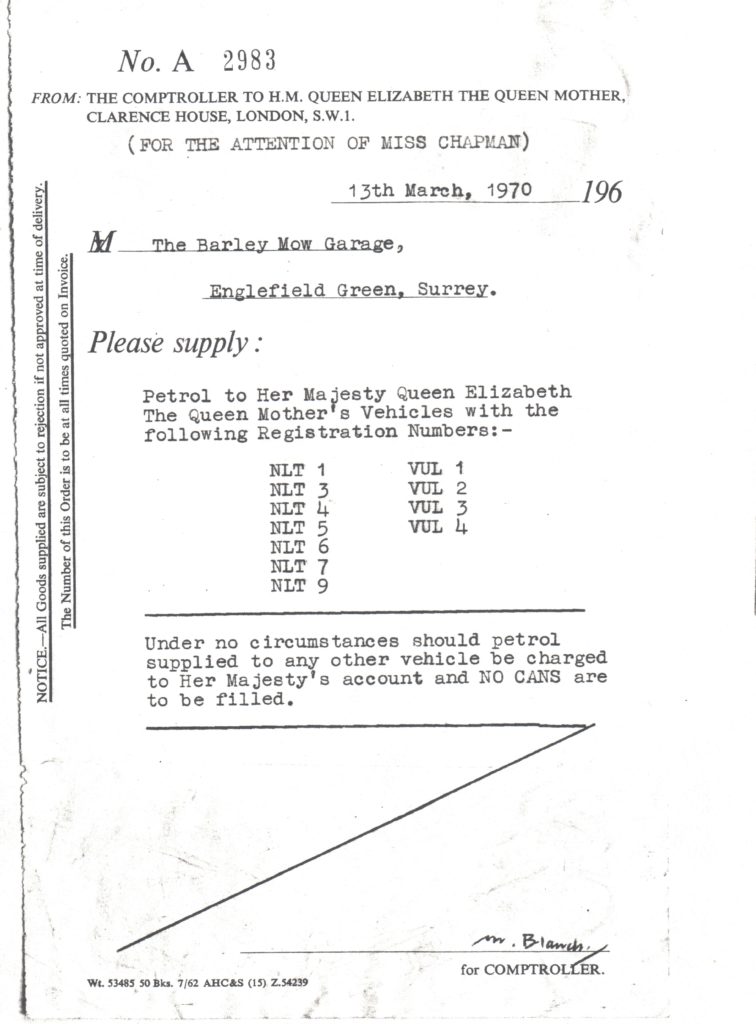By Royal Appointment…
Free exhibition open May 2023 – September 2023
Monarchs of the United Kingdom have been acknowledging their favoured suppliers since mediaeval times. The first Royal Warrants of Appointment were awarded in the 15th Century – including one to William Caxton, appointed King’s Printer in 1476. Although the system was abolished under Oliver Cromwell, Charles II re-established the granting of royal warrants after the Restoration of the Monarchy. In the 18th Century, royal tradespeople began to display the Royal Arms on their premises.
With Queen Victoria awarding over 2000 warrants, rules around them were tightened in the mid-19th century and the Royal Warrant Holders Association (https://www.royalwarrant.org/ ) was formed to protect the rights of genuine holders. It now acts on behalf of the Lord Chamberlain’s Office to carry out all initial clerical work in connection with Royal Warrants.
From 1885-1993 tradesmen permitted to display the royal warrant were listed in an annual supplement to The Gazette. https://www.thegazette.co.uk/
Tradesmen may apply for the Royal Warrant and the right to display the Royal Arms if they have been supplying the Monarch, Consort or Heir to the Throne with goods for a period of at least 5 years and continue to do so. The warrant is granted to a named individual within a company, who is responsible for the correct use of the relevant Royal Arms. Warrants, which are reviewed every 5 years, expire on the death/retirement of that named person or if the conditions of the award (e.g. concerning confidentiality) are breached.
Successful applicants are sent details of firms which can supply the display items they require.
Following a change of Monarch, the Royal Household reviews Warrant grants, while the company or individual may continue to use the Royal Arms in connection with the business for up to two years.
All the monarchs from Queen Victoria to King Charles III, as Prince of Wales, have used tradesmen in our area and granted them the Royal Warrant.

Queen Elizabeth the Queen Mother awarded her Royal Warrant to no fewer than ten businesses in Egham, Englefield Green and Virginia Water for foodstuffs and services such as window cleaning.
We also have two respected local organisations entitled to use the word royal in their name: Royal Holloway (first granted by Queen Victoria in 1886) and the Egham and Thorpe Royal Agricultural and Horticultural Association (granted by the Prince of Wales, later Edward VII in 1864), organisers of the Egham ‘Royal’ Show.
Local warrant holders in alphabetical order; the dates refer to the validity of the warrants and not the life of the business.
Atkinson, K., Chutney, Englefield Green 1904-34, King Edward VII. This warrant continued for 24 years after the death of Edward VII!
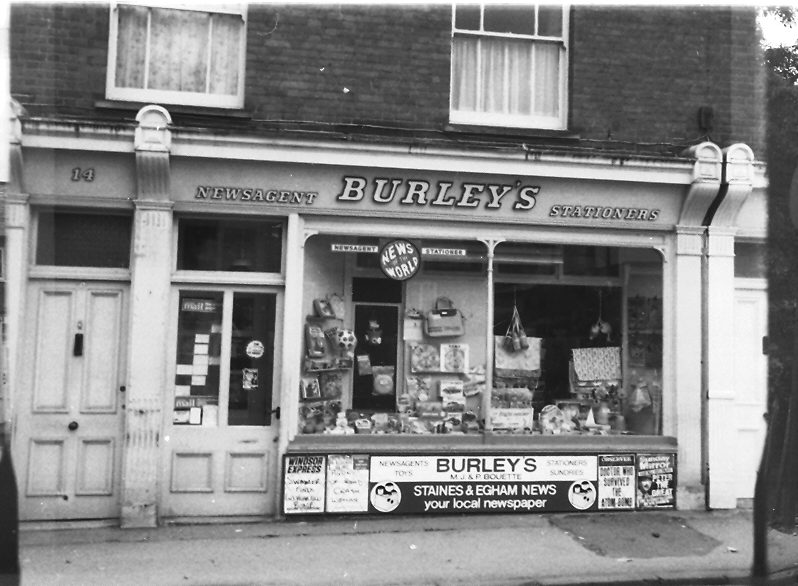
Burleys Newsagent and Tobacconist, Victoria Street, Englefield Green 1983-2001, Queen Elizabeth the Queen Mother.
Photo: Bill Godwin. Undated.
Clarke’s Bros, Butchers, High Street, Egham 1993-1998, Queen Elizabeth the Queen Mother. Established in 1877 Clarke’s butchers received their official warrant in 1993 after supplying beef to the Queen Mother whenever she was at Windsor.
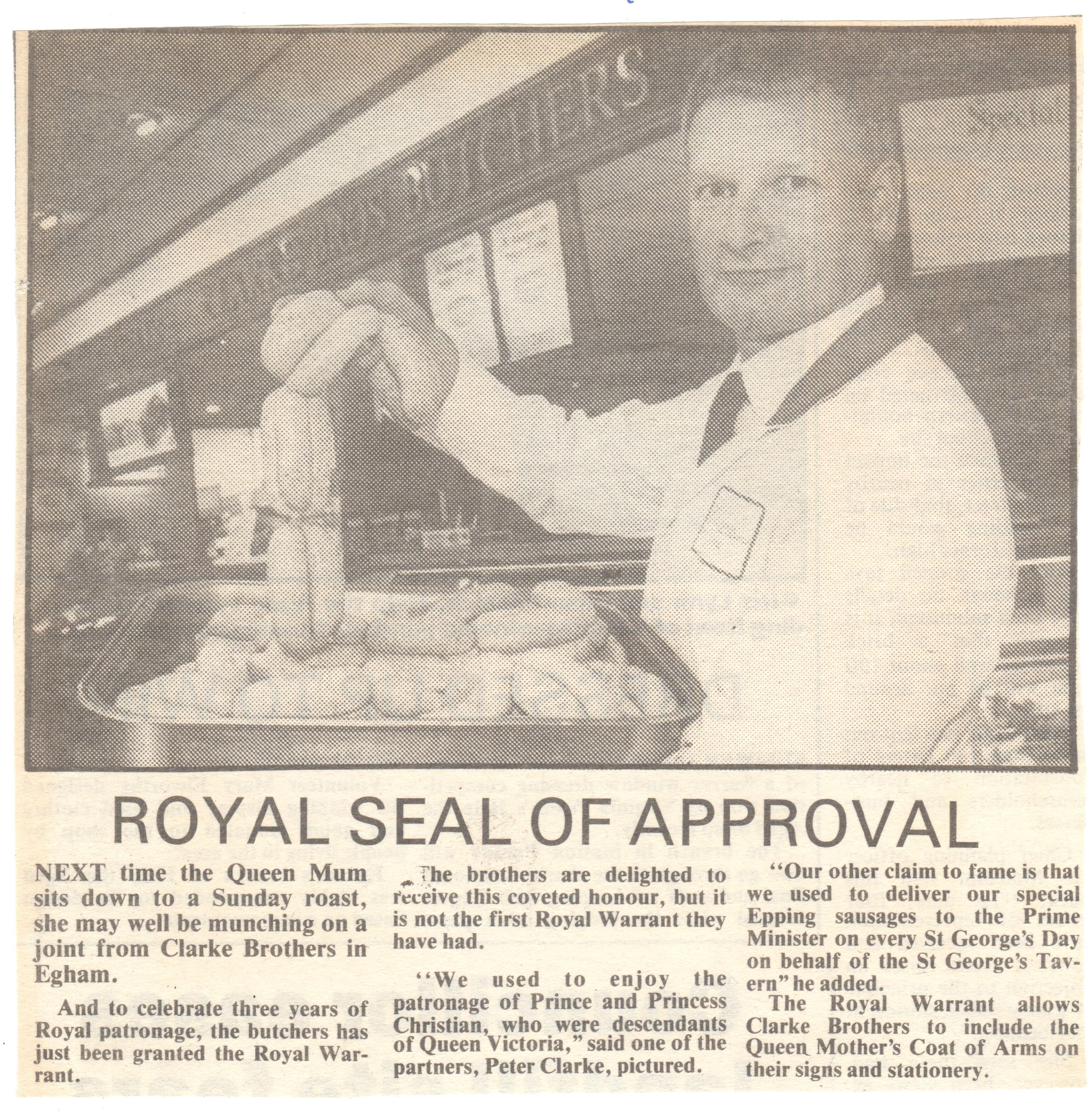
.
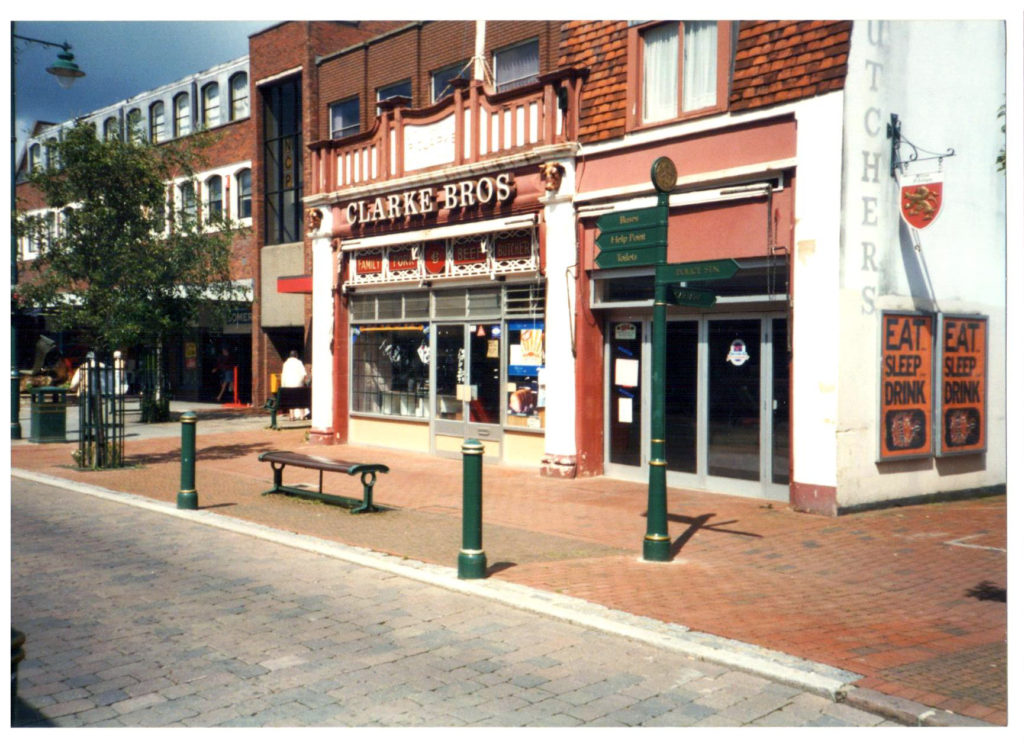
Clarke’s shop shortly before its closure in 1998 and subsequent demolition. The site is now home to Costa Coffee. At their peak Clarke’s had two shops in Egham High Street and others in Virginia Water, Sheerwater, Hayes, Windsor and Englefield Green.
[P4316-2 (2)]
In 1912, an earlier member of the Clarke family, Robert, was awarded what may have been a less official warrant, but no less gratifying, by Queen Victoria’s youngest daughter Helena and her husband (Prince and Princess Christian of Schleswig-Holstein), who lived at Cumberland Lodge.
DER Ltd Suppliers of Television Receivers, Egham 1991, Queen Elizabeth II, Queen Elizabeth the Queen Mother and King Charles III as Prince of Wales. DER, part of Radio Rentals, moved its Head Office here from Twickenham but spent only a short time in Egham before moving again, with its royal warrants.
Drake and Mount, Forage Merchants, High Street, Egham 1916-60, King George V then Edward VIII as Prince of Wales then King George VI then Queen Elizabeth II. Royal Warrants cannot usually be passed on when a company is taken over or merges with another. Drake and Mount seem to have found a way round this after they merged with William Paice’s seeds and corn business, but the warrant specification changed from seed, plants and flowers to forage merchant.
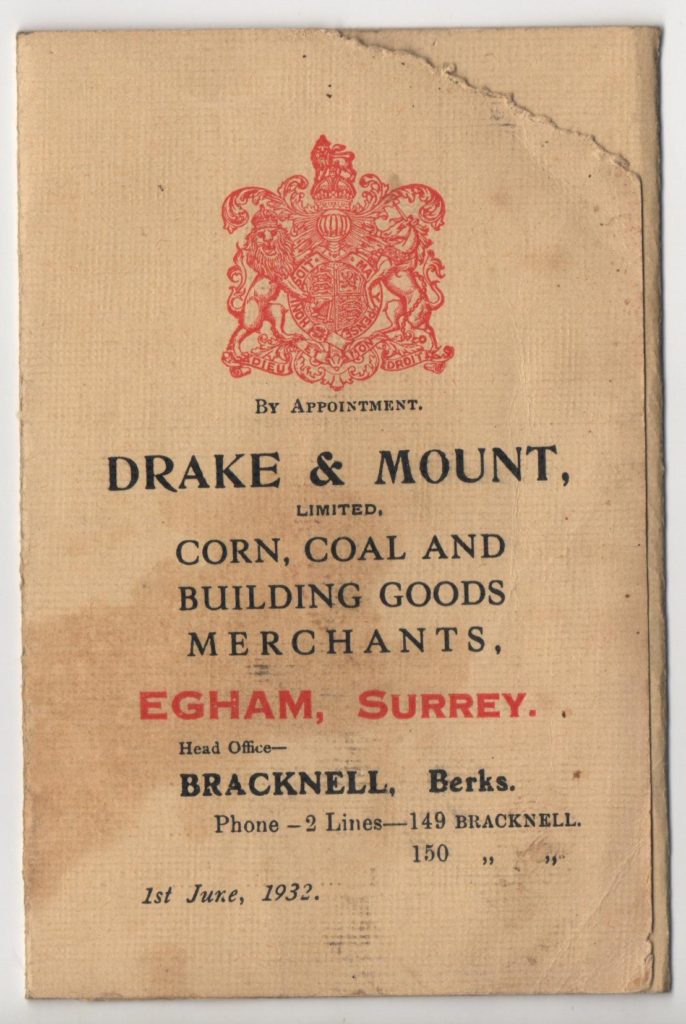
Advertising leaflet from 1932 [DOC8]
Drake & Mount finally held the royal warrant for more than forty years!
The Prince of Wales (later King Edward VIII/Duke of Windsor) awarded them a separate warrant as Coal & Coke Manufacturers from 1936-1938. His abdication in 1936 just before the start of World War II caused some delays in the system. No new list was published in 1937 and warrants he awarded as Prince of Wales seem to have retained their validity for several years.
Egham Animal Food Supplies, Corn and Animal Feed Merchants, Station Road North, Egham 1986-, Queen Elizabeth the Queen Mother.
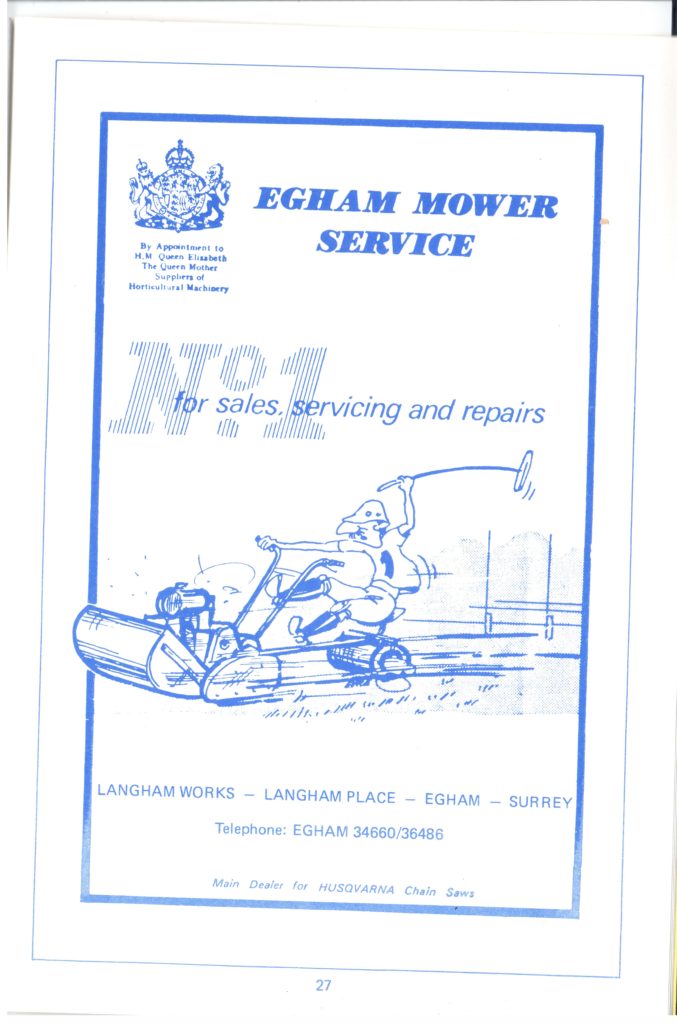
Egham Mower Service (Hewerdine, C. F. Ltd. 1978-1986 then Dettlyn Ltd 1987-1991) suppliers of horticultural machinery, Langham Place, Egham 1978-1991, Queen Elizabeth the Queen Mother.
Advertisement from Souvenir Programme of 130th Egham Royal Show 1987. [B1157A]
Knight, J. W. (Fisheries) Ltd, Fishmonger and Poulterer, Virginia Water 1978-1990, Queen Elizabeth the Queen Mother. The Queen Mother was well-known for her love of fish and used two local fishmongers between the nineteen-sixties and nineties.
Paice, William, seeds plants & flowers/corn merchant, High Street, Egham 1886-1915, Queen Victoria then King Edward VII then King George V. In 1905 William Paice merged his business with Drake and Mount who took it all over, including the royal account, after his retirement.
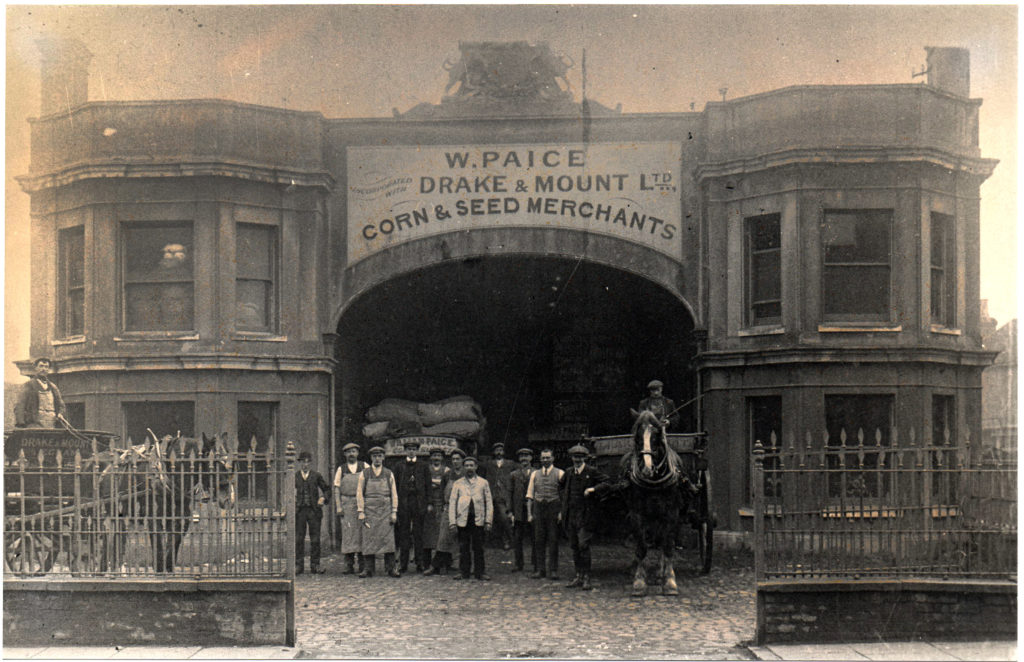
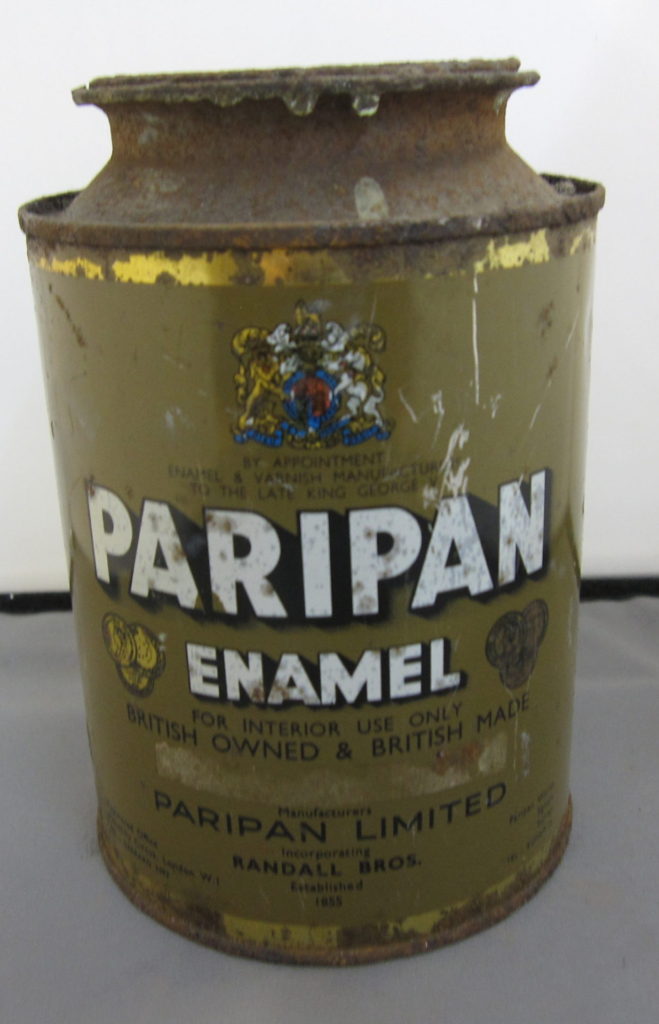
Paripan Ltd, Enamel and Varnish Manufacturers, Piccadilly Circus, London 1922-1951, King George V Paripan’s enamels, varnish and paints were manufactured at Yard Mead Egham from 1886 until roughly 1967.
[MC636]
Pither, Edward, Ltd, Suppliers of Fish and Poultry, St. Jude’s Road, Englefield Green, 1967-1972, Queen Elizabeth the Queen Mother.
Sharwood, J. A. & Co. Ltd Manufacturers of Chutney and Purveyors of Indian Curry Powder, Egham 1992- Queen Elizabeth II. Another British company of long-standing which based its Head Offices in Egham for a number of years. Acquired by Premier Foods (now based in St Albans) in 2007, it has the Royal Warrant to this day.
Stopps, J. & Sons Ltd, Bakers and Confectioners, High Street and Hummer Road, Egham 1974-2002, Queen Elizabeth II and Queen Elizabeth the Queen Mother. J. Stopps & Sons (est. 1898) were the proud holders of two Royal warrants up to their closure in 2002; Queen Elizabeth the Queen Mother from 1974 and Queen Elizabeth II from 1990.
They were first asked to call at the Royal Lodge in 1970 with a selection of bread and cakes and delivered three or four times a week thereafter. Because they supplied goods from both their Hummer Road Bakery and the High Street shop they were entitled to display the warrants in both premises.
Stopps also had shops in Englefield Green and Virginia Water and supplied additionally the Guards Polo Club Windsor where the Duke of Edinburgh was President, Wentworth Golf Club and Great Fosters.
In 1980 Mr and Mrs Stopps were invited to a Royal Garden Party celebrating the Queen Mother’s 80th birthday and in 1982 to a reception at St James’s Palace.
In 2000 they made a celebratory cake to mark the Queen Mother’s 100th birthday, a replica of which was displayed in the window of their High Street shop.
Images show the progress from no warrant to two warrants:
Thomas Window Cleaning, Englefield Green 1971-, Queen Elizabeth the Queen Mother
Want, Albert & Co., Ltd, Suppliers of Household Hardware and Garden Sundries, Victoria Road, Englefield Green 1984- Queen Elizabeth the Queen Mother. This was another well-established family company with a regular royal customer. .
Royal Warrant or Not?
Only businesses which have supplied the Royal family for at least five out of the last seven years. (formerly just three) may apply for Royal Warrants and, in the 1920s, cases of the improper use of the Royal Arms were reduced.
The crackdown did not stop clever but misleading advertising. What seems to be a copy of the royal arms appears in a 1930s advertisement for Clarke’s, claiming to be ‘by appointment to St Stanislaus Beaumont & Holloway Sanatorium.’ St Stanislaus Beaumont, later Beaumont College, was a public school in Old Windsor which closed in 1967. The preparatory school St John’s Beaumont is still based on Priest Hill.
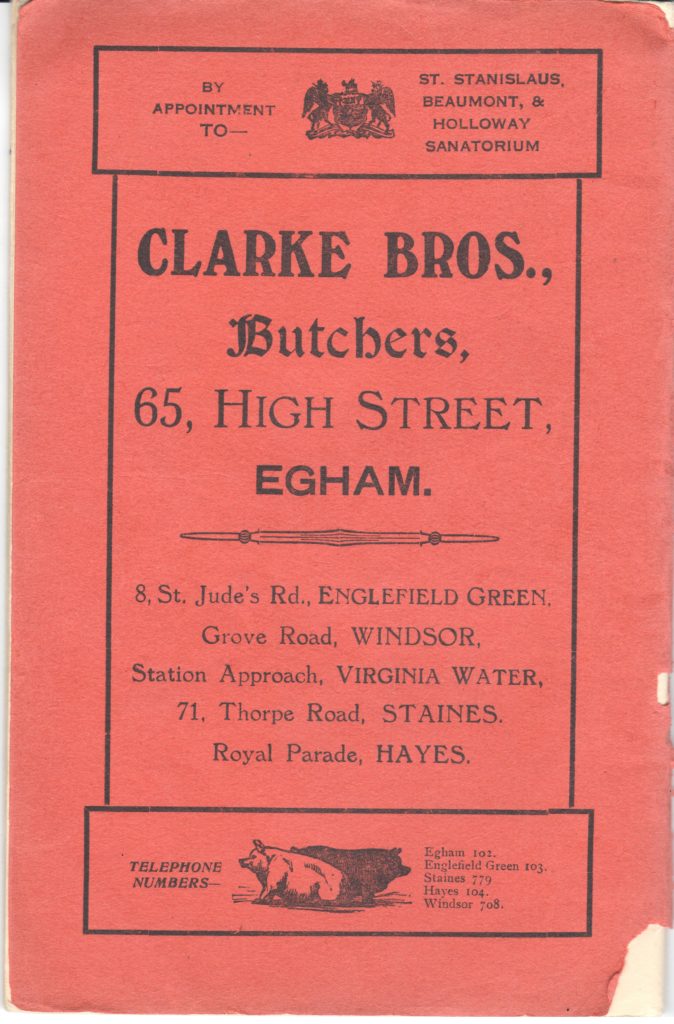

Another way round the regulations was to mention a royal link in advertising, like F. J. Robbins Clock and Watch Repairer who counted among his customers Queen Victoria’s third son, Prince Arthur Duke of Connaught and Strathearn, who lived at Bagshot Park.
[Photo in public domain]
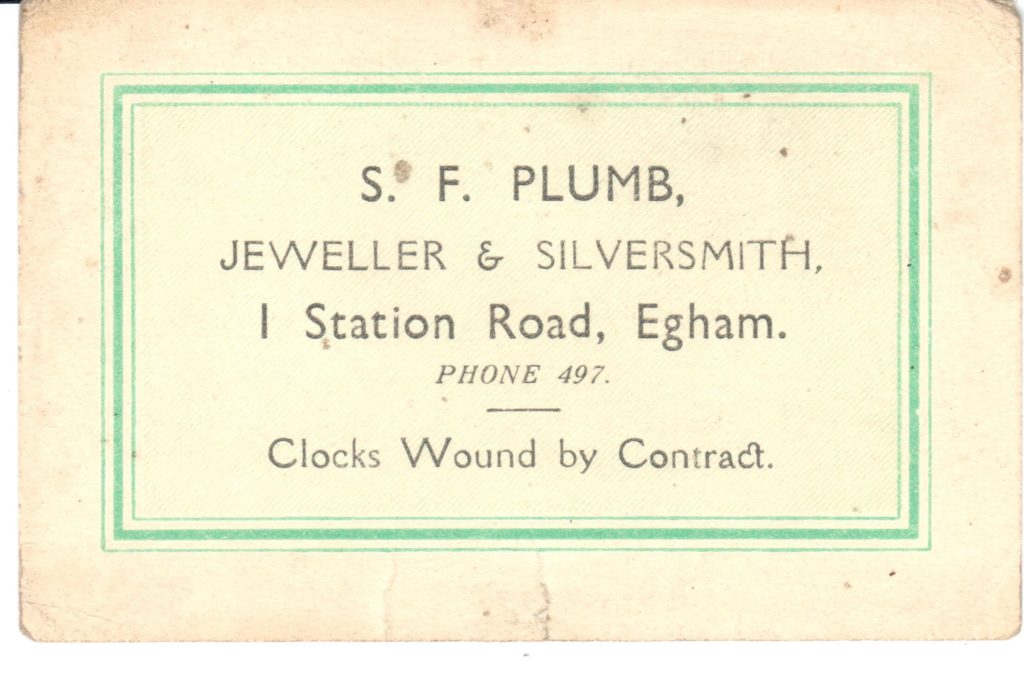
After selling jewellery to the Prince of Wales, later Edward VIII, Station Road jeweller Mr S. Plumb applied in May 1933. It seems that his application stayed in a pending file – perhaps because he had not been a supplier for long enough – until 1936 when King George V died and all warrant applications were suspended. Business card [DOC853A]
The Barley Mow garage, next to the Barley Mow public house in Englefield Green, supplied petrol for the Queen Mother’s cars as this invoice/receipt shows, but clearly not for long enough to receive official recognition..
Does the Royal Warrant make any difference?
Business owners are usually very proud to display evidence of royal approval. In Egham today, and many other towns across the country, one of the most prominent Royal Warrant Holders is Waitrose, which in 2002 became the first supermarket chain to be granted a Royal Warrant by the Queen. Go into Waitrose and you will see many individual items carrying a Royal Warrant, e.g., Marmite, Ariel (made by Procter and Gamble who until 2021 had their Technical Centre at Rusham Park) and Cadbury’s chocolate – all currently under review since the death of Queen Elizabeth II in September 2022.
For smaller companies, a royal warrant can apparently provide a boost in sales worth 5% per year, which is well worth having.
But does it make any difference to customers? In the late nineteen-nineties this writer went in to Clarkes in the High Street to request my mother’s favourite, quite expensive, cut of beef for a family Sunday lunch.
“I’m sorry,” said Peter Clarke. “We only order in two of those a week. This week the Queen Mother is entertaining so we don’t have any left…”
Mum had to be served something else!
Does anyone else have any memories of the shops we used to enjoy by Royal appointment? Please drop in to see us at Egham Museum or send your stories and pictures to Curator@Eghammuseum.org or phone 01784434483.
